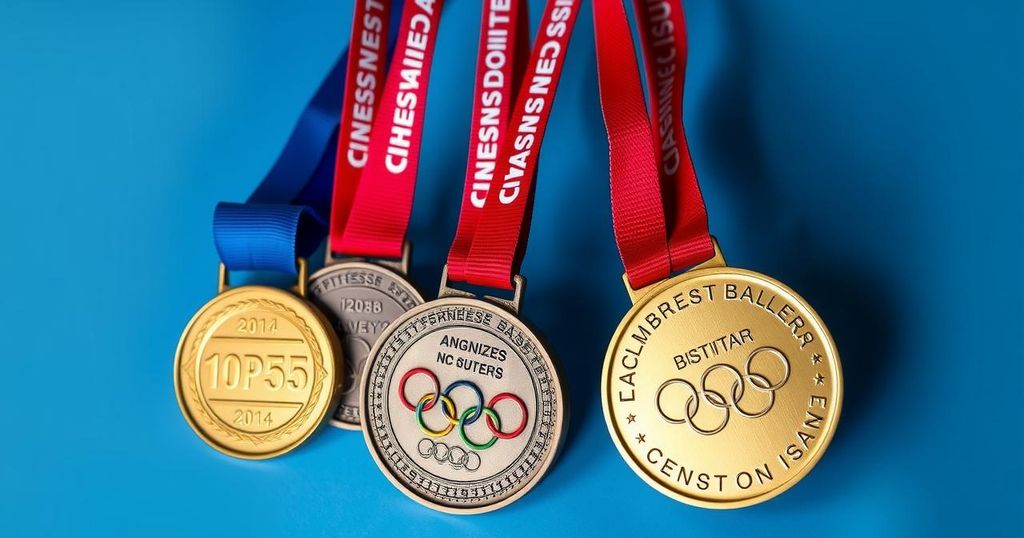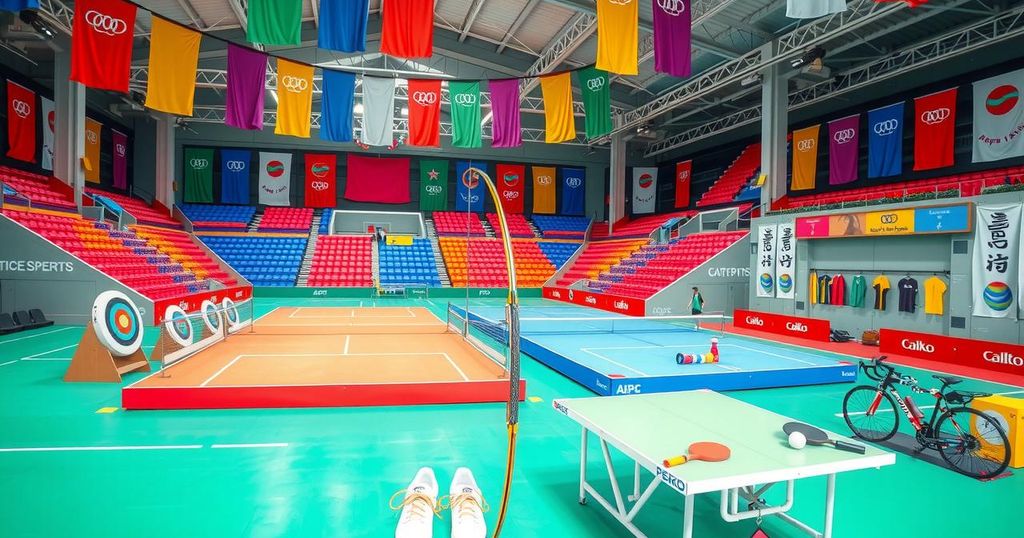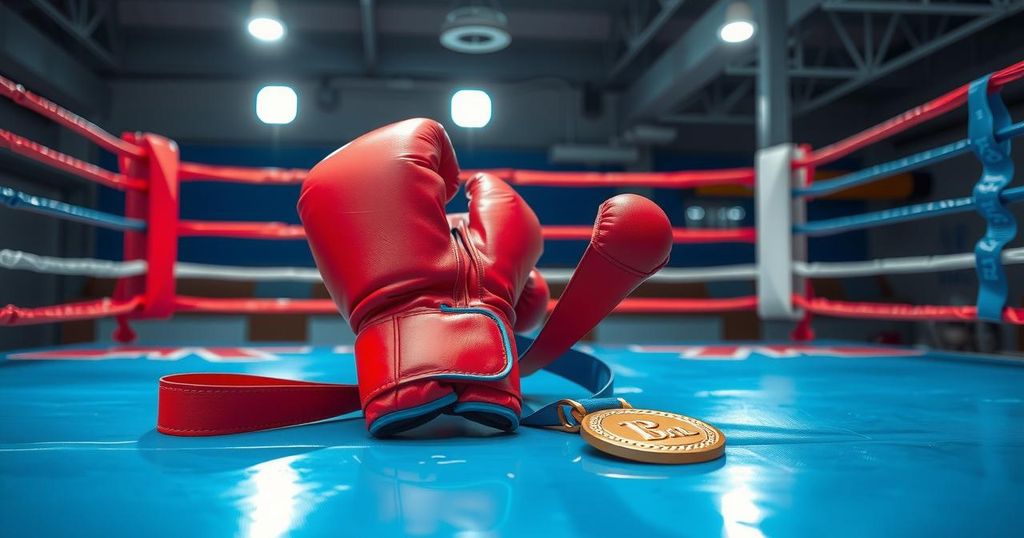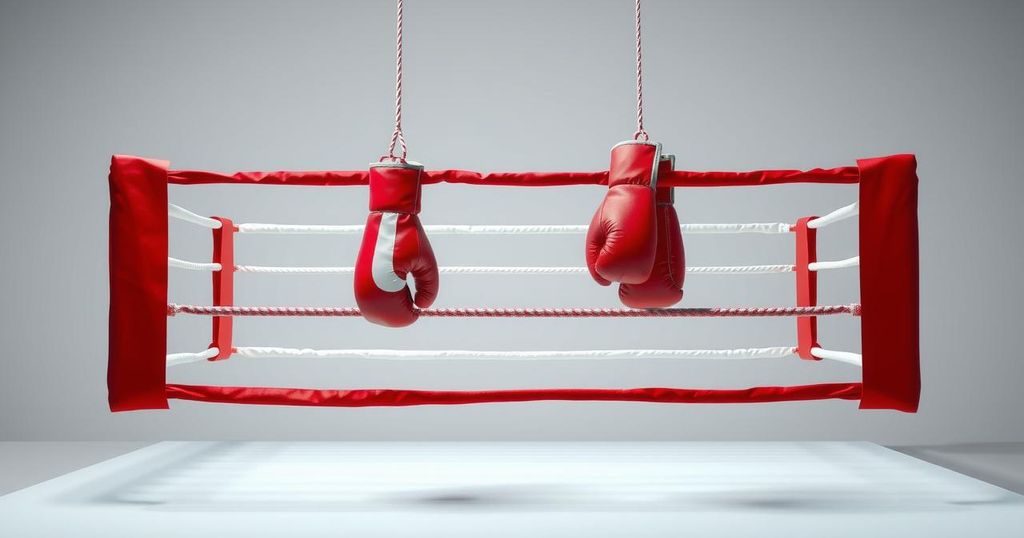Controversies Emerge Surrounding Paris 2024 Olympics Medals and Ceremonies
The Paris 2024 Olympics have faced notable controversies, including concerns about the artistic direction of the opening ceremony, environmental protests, and the quality of medals awarded to athletes. Two French swimmers reported their bronze medals developing black spots, prompting criticism of the organizing committee. While the committee pledged to replace affected medals, broader concerns regarding standards persist.
The Paris 2024 Olympics, although anticipated as a highlight of sporting excellence, has been marked by significant controversies from various fronts. As the Games approach, debates surrounding the opening ceremony’s artistic choices and ongoing environmental protests have escalated. Recently, French swimmers raised alarms regarding the quality of their bronze medals, which exhibited moldy black spots shortly after the conclusion of the event, provoking discussions across social media platforms.
The opening ceremony aimed to highlight France’s cultural heritage and featured performances from drag queens and dancers. However, these artistic elements received mixed reviews, with some viewing the homage to Leonardo da Vinci’s “The Last Supper” as innovative, while others considered it inappropriate. The varying perspectives have ignited a larger discussion about the representation of cultural icons in contemporary settings.
Additionally, environmental activists expressed concerns about the ecological footprint of the Olympics even prior to their commencement. Protests emphasized the environmental degradation caused by extensive infrastructure projects and heightened waste production associated with hosting the Games, highlighting the tension between sporting events and sustainability.
In a startling development, swimmers Clément Secchi and Yohann Ndoye-Brouard took to social media to report issues with their bronze medals. Photos depicting their medals’ deterioration, complete with black tarnish, circulated widely. Mr. Ndoye-Brouard’s post, captioned “Paris 1924,” alluded to the last time Paris hosted the Olympics, insinuating a retrogressive sentiment concerning the event’s quality.
Other athletes, including American skateboarder Nyjah Huston, echoed their concerns regarding medal quality, stating, “These medals look great when they’re brand new. But after wearing it and sweating a little… it’s clearly not as good quality as you might think.” This widespread dissatisfaction has prompted critical scrutiny of the organizing committee’s quality control processes regarding the medals.
In response to the backlash, the Paris 2024 organizing committee has committed to replacing the tarnished medals of Secchi and Ndoye-Brouard. Nonetheless, there remain unresolved issues about the durability and overall production standards of the medals given to athletes, raising questions about the Games’ legacy.
The series of controversies encompassing the Paris 2024 Olympics—from artistic interpretations to environmental advocacy and medal quality—highlights the complex interplay between sporting excellence and broader societal issues. The ensuing discourse reflects a deeper expectation of accountability and quality in what is meant to be a celebration of global athleticism.
The Paris 2024 Olympics were set to be a prestigious event, showcasing top athletes from around the world. However, the preparations have faced scrutiny on multiple levels, beginning with the artistic presentation of the opening ceremony, which sought to incorporate elements of French culture yet received mixed reviews. Moreover, environmental activists have raised concerns about the sustainability of the Games, protest actions highlighting the ecological impacts associated with such large-scale public events. Most troubling was the revelation that bronze medals awarded to athletes were not meeting quality standards, prompting public outrage.
In summary, the Paris 2024 Olympics have encountered significant challenges, with controversies spanning artistic representation, environmental impact, and the integrity of medals awarded to athletes. The commitment from the organizing committee to rectify these issues is hopeful, yet it emphasizes the need for rigorous quality control and sensitivity to cultural and environmental concerns. The resulting discussions from these controversies underscore the intertwining of sports with societal values and expectations.
Original Source: www.newsx.com








Post Comment